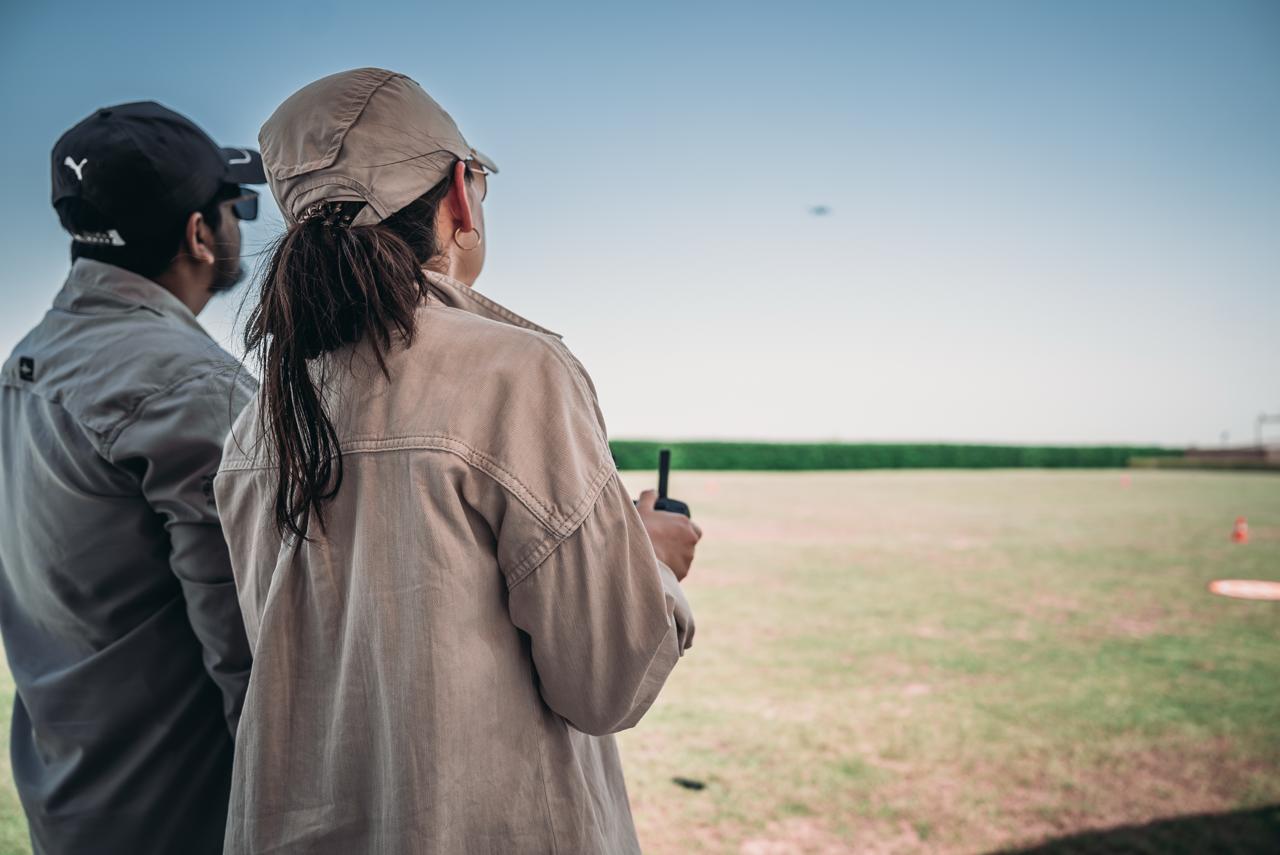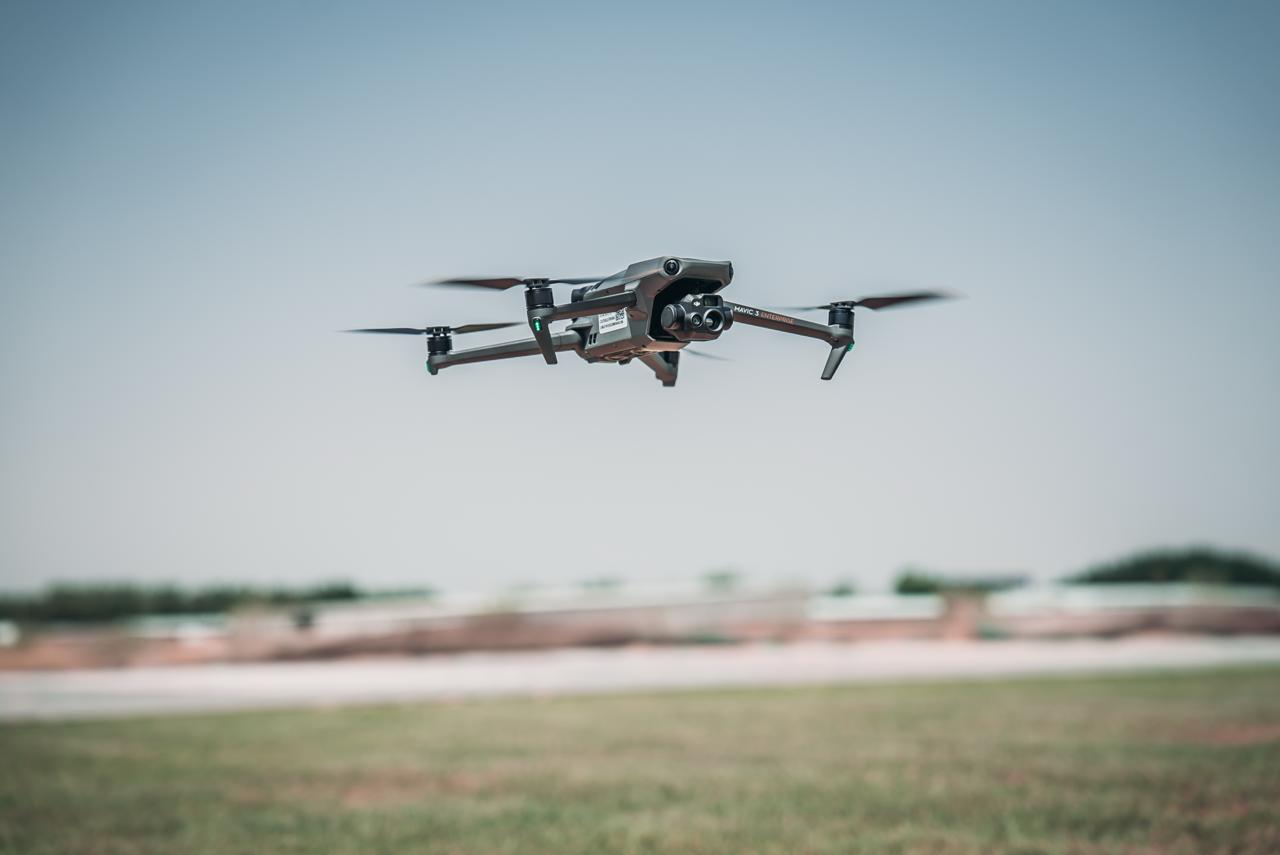The Ultimate Guide to Becoming a Certified Drone Pilot in the UAE
Share This Post
Why You Need a Certificate
First things first, why is a certificate necessary? In the UAE, drones aren’t just for hobbyists; they’re powerful tools that, when used improperly, can pose significant risks. The UAE’s General Civil Aviation Authority (GCAA) has well-thought out regulations in place to ensure that drone operations are conducted safely and responsibly. Whether you’re flying a drone for fun or business, having a certification is mandatory if you plan to fly anything larger than a toy drone.

Step 1: Understand the Legal Framework
Before you even think about getting behind the controls, it’s crucial to understand the legal landscape. The UAE has stringent rules governing drone use to ensure public safety, protect privacy, and maintain national security.
Registration: All drones must be registered with the GCAA. This applies to both commercial and recreational users.
No-Fly Zones: The UAE has designated no-fly zones, which include areas near airports, military bases, and certain public spaces. Violating these zones can result in severe penalties, including fines and imprisonment.
Insurance: For commercial drone operators, having liability insurance is a must. This covers any potential damages or accidents caused by your drone.
The GCAA and Dubai Civil Aviation Authority (DCAA) are the primary bodies that regulate drone activities in the UAE. You’ll need to familiarize yourself with their guidelines to ensure you’re compliant with all the necessary regulations.

Step 2: Choose the Right Training Program
Once you’re clear on the regulations, the next step is to get trained. Proper training is not just about learning to fly; it’s about understanding airspace management, safety protocols, and the technical aspects of drone operations.
In the UAE, only GCAA-approved training centres such as the FEDS Drone Academy are authorised to offer courses for drone pilots. Look for a program that provides comprehensive training, covering both theory and practical flying sessions.
FEDS Drone Academy is one of the leading training centres, offering a curriculum that’s aligned with GCAA standards. Their courses include everything from basic drone operations to advanced flight techniques and safety procedures. They also provide live flight training, which is crucial for gaining hands-on experience.

Step 3: Register for the Certification Exam
After completing your training, the next step is to register for the DCAA’s Remote Pilot Certificate exam (Exam registrations are included with the commercial drone training programme at FEDS Drone Academy). This exam tests your knowledge of the regulations, safety procedures, and practical flying skills. Here’s what you need to know:
Theory Exam: This part of the exam covers topics such as air law, flight performance, meteorology, and operational procedures. You’ll need a solid understanding of these subjects to pass.
Practical Exam: The practical component tests your ability to operate a drone safely and effectively. This includes pre-flight checks, in-flight manoeuvres, and emergency procedures.
To pass the exam, it’s essential to review all your training materials thoroughly. Make use of practice exams and any mock tests provided by your training centre to get a feel for the types of questions you’ll encounter.

Step 4: Completing Additional Documentation and Staying Compilant
Getting certified is just the beginning. You need to stay current with the latest rules from the GCAA and DCAA. Check their websites regularly for updates that may affect your operations. If you own a drone, it must be registered. For commercial use, make sure you secure all required permits and approvals before flying.
It’s also smart to take refresher courses now and then. They help you stay sharp, improve your skills, and keep up with the latest tools and best practices in the field.

Tips for Success
Practice, Practice, Practice: The more you fly, the better you’ll get. Try to get as much flight time as possible, both during and after your training.
Join a Drone Community: Engaging with other drone pilots can provide valuable insights and support. Consider joining local drone clubs or online forums to share experiences and learn from others.
Stay Informed: The world of drone technology is constantly evolving. Stay ahead of the curve by keeping up with industry news, attending workshops, and participating in training updates.
Becoming a certified drone pilot in the UAE is a rewarding journey that requires dedication, proper training, and a thorough understanding of the regulations. With drones becoming increasingly integral to various industries, having your certificate not only opens up career opportunities but also positions you at the forefront of technological innovation.
If you’re ready to start your journey, FEDS Drone Academy is here to help you every step of the way. With expert instructors and a curriculum that meets GCAA standards, you’ll be well-equipped to pass your certification exams and take to the skies with confidence.



